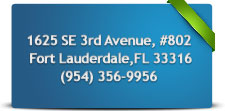Wisdom Teeth
Please click on the button below for a video description of Wisdom Teeth and the potential problems that can incur.

What Are Wisdom Teeth?
The last molars to erupt in the back of your mouth are commonly known as Wisdom Teeth (Mandibular Third Molar). They are called wisdom teeth because they usually begin coming in between the ages of 17 to 21 or older – the “coming of age” time period in a person’s life.

Normally an adult will have four wisdom teeth, but some adults may have more or less.
Early humans had a rougher diet which caused wear on their teeth making it spatially possible for them to keep and use their wisdom teeth. However, with our current diet and the desire to have orthodontic teeth straightening, we produce a fuller arch in the jaw, creating less room for wisdom teeth to grow.
Why Do They Get Impacted?
A tooth becomes impacted because there is a lack of space in the dental arch, causing the tooth to grow on an angle towards the other molars and their roots or toward the jaw. This impaction can cause a lot of pain for the individual and can also lead to infection (See Figure 1). The wisdom tooth may also crowd or damage the adjacent molar and its roots (See Figure 2), or damage the jaw bone and its nerves. Also, when the wisdom tooth is growing toward adjacent teeth, it can trap plaque and debris making your teeth more vulnerable to decay.

Wisdom teeth will likely cause problems as the patient ages. Approximately 85% of wisdom teeth will need to be removed. We may recommend that your wisdom teeth are removed before they begin to cause problems in your mouth to avoid a more complicated procedure.
What Does Removing My Wisdom Teeth Require?
The ease of the wisdom teeth removal depends on the position of the tooth and root development. A wisdom tooth that has fully cut through the gum can be as easily extracted as any other tooth. However, a wisdom tooth that is underneath the gums and pushed into the jawbone will require an incision into the gums and then removal of the portion of bone that lies over the tooth. In this case, the tooth will be extracted in smaller portions to minimize the amount of bone that is removed. Most wisdom teeth extractions require a local anesthesia (an injection to numb the gum around the tooth being extracted), general anesthesia may be used to help ease any anxieties you may have. We will discuss with you what type of anesthesia is best for your needs.
What Do I Need to Do During Recovery?
After your wisdom teeth are removed you may experience some swelling and mild discomfort, which are normal symptoms and are part of the healing process. Here is what to expect after the procedure.
The First 24 Hours:
- Bleeding: This may occur for several hours after your wisdom teeth are removed. To control it, place a piece of clean moist gauze or moistened tea bag over the empty tooth socket and bite down firmly. This needs to be done for about 45 minutes. The tannic acid in tea helps blood clots (similar to a scab on an open wound) to form. You should avoid rinsing, spitting or sucking actions for 24 hours after your wisdom teeth are removed. For example, don't drink beverages through straws or smoke, and avoid hot liquids (such as soup or tea). You should also avoid carbonated and alcoholic drinks. These activities can cause the clot to dislodge, which will cause dry socket.
- Facial Swelling: This can occur where the wisdom tooth was extracted. You can apply a cold compress to ease the swelling and pain. Place the compress or ice (in a wrapped cloth) on the area of your face that is swollen for 10-minutes on, followed by 20-minutes off. Repeat as necessary during this first 24-hour period. Avoid taking aspirin, ibuprofen (e.g. Motrin, Advil, etc.) if you have a stomach ulcer.
- Pain Medications: Acetaminophen (Tylenol) or ibuprofen (Motrin or Advil) can be taken to manage your pain. We may prescribe more potent pain relievers, such as narcotics, if necessary.
- Antibiotics: May be prescribed prior to removing your wisdom teeth (to treat any infection around the wisdom tooth) and should continue to be taken until you have finished the full prescription.
- Food: Avoid hot liquids and alcoholic beverages for at least 24 hours. When the extraction is more difficult, you will need to consume a soft or liquid diet for at least 24 hours after removal of your wisdom teeth.
- Brush your Teeth: You need to continue to brush your teeth, but avoid the teeth adjacent to the extracted tooth during the first 24 hours. On day two, you can resume the gentle brushing of your teeth. However, do not use commercial mouth rinses because these can irritate the area.
After 24 Hours:
- Facial Swelling:Facial Swelling in the area of your wisdom tooth extraction needs to be managed with heat after the first 24 hours of ice. Use a moist warm towel and apply it to the area on a 20-minute on, 20-minute off schedule. Repeat as necessary.
- Rinse Your Mouth with Warm Salt Water: Use 1/2 teaspoon of salt in a cup of warm water before bed and after meals. Do not use commercial mouth rinses.
- Complete Healing: This will not occur for a few weeks to a few months following the removal of your wisdom teeth. However, usually within the first week or two, you will feel reasonably comfortable because enough healing has taken place. We will explain what to expect regarding your healing process.


